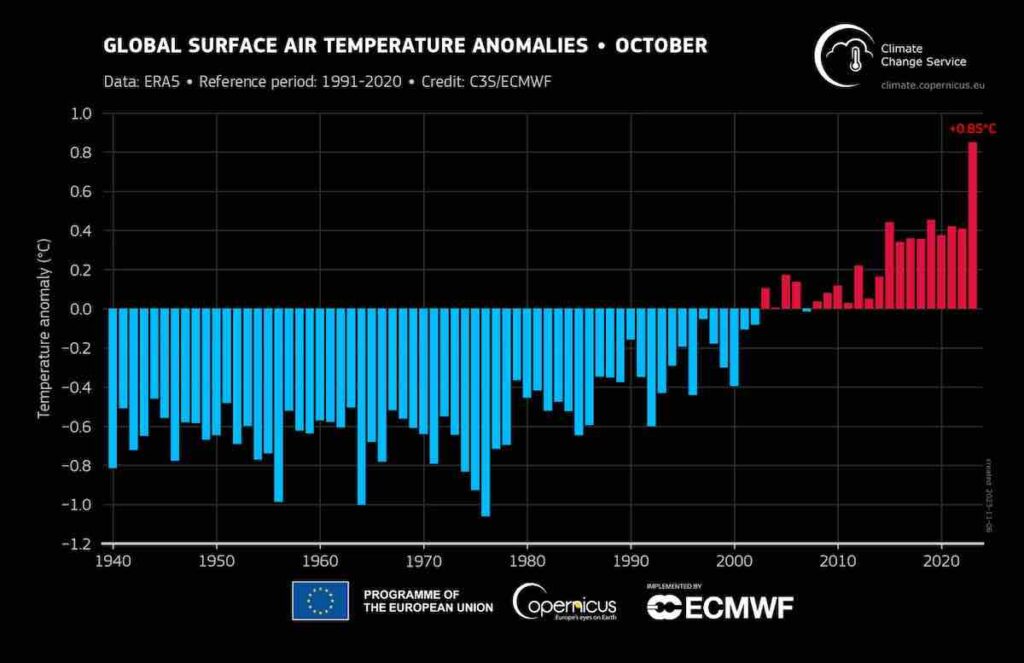The Earth has not only experienced its hottest year in the modern era but possibly the most sweltering in 125,000 years.
Humanity has just lived through Earth’s hottest recorded 12 months, a stark indicator that our planet teeters on the brink of a catastrophic 1.5 degree-Celsius warming threshold. This alarming warming could trigger irreversible ecological damage, according to a recent analysis published on November 9th, 2023.
This analysis reveals a disturbing reality: nearly three-quarters of the global population have endured extreme heat, a phenomenon once rare but now made thrice more likely by human-induced climate change.
RELEVANT SUSTAINABLE GOALS



The Unprecedented Heat
This rapid warming, validated by both satellite and surface observations, paints a troubling picture. Since 1850, data from weather stations worldwide have consistently shown a rise in Earth’s average temperature, edging us closer to ecological tipping points.
The analysis, spanning November 2022 through October 2023, included cooler months and the recent dramatic temperature spike. Record-high global temperatures in the latter half of the year all but guarantee 2023 as Earth’s warmest year.
Attribution science links billions of recent extreme heat experiences to fossil fuel emissions. These temperatures, now thrice as likely as before the Industrial Revolution, have brought untold suffering: overwhelmed hospitals, millions displaced by floods, and severe food shortages in Africa.
The Hotspots
Alarmingly, nearly a dozen countries in Europe and northern Africa have already breached the 1.5 degree-Celsius warming threshold this past year. Regions like Switzerland and South Sudan have experienced average temperatures 2 degrees Celsius above preindustrial levels.
“This year aligns with the long-term warming trend we’ve observed,” notes Andrew Pershing, Vice President for Science at Climate Central. “It’s a pattern that’s not likely to subside soon.”
Data from the European Union’s Copernicus Climate Change Service further emphasizes this trend. October 2023 marked the fourth consecutive month of record global warmth, with global temperatures soaring 1.7 degrees Celsius above preindustrial October norms.
With a strong El Niño event expected to peak this winter, the world braces for potentially even higher temperatures in 2024. “El Niño will push these temperatures higher,” Pershing states. “We’re on track to continue breaking records.”
Lead image courtesy of Ian Dyball from Getty Images





